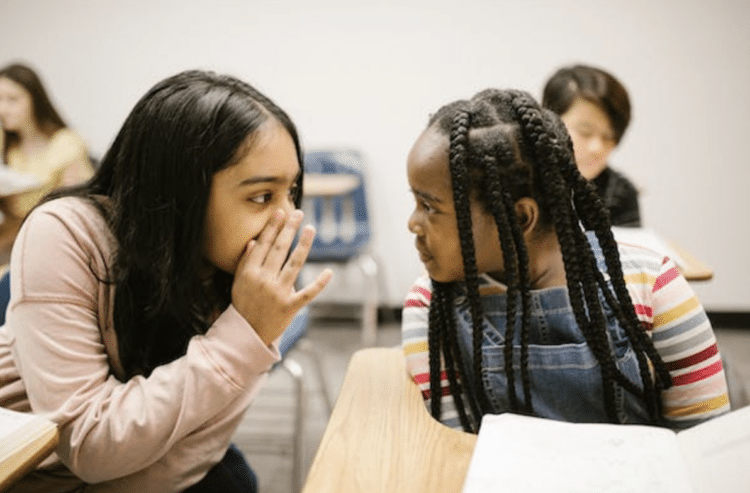In a world where diverse voices and narratives have the power to shape our understanding of the human experience, it is essential to explore alternative perspectives.
Embracing unconventional stories allows us to challenge the status quo, foster empathy, and broaden our horizons.
This article delves into the significance of embracing alternative perspectives and uncovers the richness of unconventional stories and some business card template.
The Power of Alternative Perspectives
Challenging the Status Quo
To truly understand the world’s complexities, it is crucial to encourage critical thinking and question the established norms.
Alternative perspectives offer fresh insights that disrupt conventional wisdom, paving the way for social change.
By examining unconventional stories, we challenge our beliefs, expand our intellectual boundaries, and encourage a more inclusive society.
Fostering Empathy and Understanding
Unconventional stories have the remarkable ability to break down stereotypes and prejudices. They offer a window into the lives of individuals and communities that may have been overlooked or misunderstood.
Through these narratives, we develop greater empathy and understanding, promoting unity and compassion across diverse backgrounds.
The Unconventional Stories Worth Discovering
Indigenous Voices: Reclaiming Identity and Heritage
Indigenous communities have many untold stories celebrating their rich cultures and histories.
Exploring alternative perspectives within indigenous narratives helps to preserve their identity, challenge colonial legacies, and foster a sense of pride among these communities.
By amplifying indigenous voices, we recognize historical injustices and work towards reconciliation.
Subcultures and Countercultures: Defying Norms
Subcultures and countercultures offer alternative perspectives that challenge mainstream ideas of conformity.
From punk rockers to environmental activists, these communities defy societal norms, exploring alternative lifestyles and advocating for change.
Unveiling their stories allows us to appreciate the power of individuality, creative expression, and the potential for societal transformation.
Untold Histories: Revisionist Narratives
Dominant historical narratives often overlook marginalized figures and events. Unconventional stories shed light on these hidden chapters, rectifying historical omissions and presenting a more comprehensive understanding of the past.
By revisiting history through alternative perspectives, we challenge the biases embedded in traditional accounts and pave the way for a more accurate and inclusive portrayal.
The Benefits of Exploring Alternative Perspectives
Enhanced Creativity and Innovation
Alternative perspectives ignite our imagination and fuel creativity. By embracing diverse narratives, we expose ourselves to various ideas and experiences that inspire new ways of thinking.
This influx of fresh perspectives leads to innovative solutions and breakthroughs across various fields, from arts and sciences to technology and social progress.
Personal Growth and Empowerment
Exploring alternative perspectives is a transformative journey of personal growth. It expands our worldview, challenges our assumptions, and broadens our understanding of the human condition.
Engaging with unconventional stories empowers individuals to question the status quo, embrace their uniqueness, and contribute to positive change within their communities.
Strengthening Inclusivity and Equality
Alternative perspectives are crucial in fostering inclusivity and equality. Amplifying marginalized voices promotes diversity and representation, ensuring everyone’s experiences and perspectives are acknowledged and valued.
Embracing unconventional stories helps us recognize and dismantle systemic biases, fostering a more just and equitable society.
Overcoming Challenges in Embracing Alternative Perspectives
Bias and Preconceptions
Recognizing and addressing our own biases is essential in embracing alternative perspectives. Unconscious biases can limit our ability to engage with diverse narratives openly.
Cultivating self-awareness and seeking out alternative viewpoints help us overcome preconceived notions, allowing for a more objective and enriching exploration of unconventional stories.
Resistance to Change
Embracing alternative perspectives can be met with resistance, as it challenges established beliefs and disrupts the familiar. Fear and discomfort often accompany the process of exploring unconventional stories.
However, it is essential to recognize that growth and progress come from stepping outside our comfort zones.
By engaging in open dialogue and fostering understanding, we can navigate resistance and create an environment that encourages diverse perspectives.
Accessibility to Alternative Perspectives
One of the challenges in exploring alternative perspectives lies in the accessibility of these narratives. Marginalized voices may face barriers in reaching broader audiences due to systemic inequalities.
However, with the advent of digital platforms and the power of social media, there is an increasing opportunity to amplify diverse voices.
By supporting and sharing content from underrepresented communities, we can contribute to democratizing alternative perspectives.
Tools and Strategies for Exploring Alternative Perspectives
Diverse Reading and Viewing Lists
Building a diverse reading and viewing list is an excellent way to engage with alternative perspectives. Seek books, articles, documentaries, and films from various authors, filmmakers, and storytellers.
Look for works that explore different cultures, histories, and social issues. By consciously diversifying our sources of information and entertainment, we expand our understanding of the world and immerse ourselves in alternative narratives.
Travelling and Immersion
Travelling to different regions and immersing ourselves in unfamiliar cultures is a transformative way to explore alternative perspectives. We gain firsthand experiences and witness diverse life forms by engaging with local communities.
These encounters broaden our horizons, challenge stereotypes, and foster cultural exchange. Travelling with an open mind allows us to appreciate the beauty and uniqueness of each culture’s story.
Participating in Dialogue and Discussion
Actively participating in dialogue and discussion is instrumental in embracing alternative perspectives.
Attend seminars, conferences, and workshops that promote diversity and inclusion. Engage in conversations with individuals from different backgrounds, ideologies, and experiences.
Join online communities and forums where alternative narratives are shared and debated. We foster an environment of understanding and growth by actively seeking out diverse voices and engaging in respectful dialogue.
Conclusion
Embracing alternative perspectives is a transformative and enlightening journey. By exploring unconventional stories, we challenge the status quo, foster empathy and understanding, and promote social change.
We can embrace alternative perspectives and contribute to a more vibrant and inclusive world by utilizing tools and strategies.
















